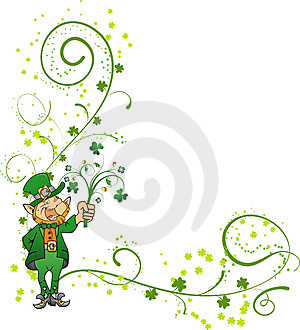Read the following article and complete each gap with ONE word:
Saint Patrick's Day 
by Ethan Cole
Saint Patrick's Day, colloquially St. Paddy's Day Paddy's Day, is an annual feast day which celebrates Saint Patrick, one of the patron saints of Ireland.
The day is the national holiday the Irish people. It is a bank holiday in Northern Ireland, and a public holiday in the Republic of Ireland, Montserrat, and the Canadian province of Newfoundland and Labrador. the rest of Canada, the United Kingdom, Australia, the United States and New Zealand, it is widely celebrated is not an official holiday.
It became a feast day in the Roman Catholic Church due the influence of the Waterford-born Franciscan scholar Luke Wadding in the early part of the 17th century, and is a holy day of obligation Roman Catholics in Ireland.
The date of the feast is occasionally moved by church authorities March 17 falls during Holy Week; this last happened in 1940 when Saint Patrick's Day was observed 3 April in order to avoid it coinciding with Palm Sunday, and happened again in 2008, when it was held on 15 March for the novus ordo liturgy and April 2 for the traditional Latin Mass to avoid second day in Holy Week.
Saint Patrick's Day celebrated worldwide by Irish people and increasingly by non-Irish people, as well (usually in Australia, North America, and Ireland). Hence the phrase, "Everyone wants to Irish on St. Patrick's Day." Celebrations are generally themed around the color green and all things Irish; both Christians and non-Christians celebrate the secular version the holiday by wearing green or orange, eating Irish food and/or green foods, imbibing Irish drink (usually Guinness), attending parades.
As well as being a celebration of Irish culture, Saint Patrick's Day is a Christian festival celebrated in Catholic Church, the Church of Ireland, and some other denominations. The day always falls the season of Lent. Some bishops will grant an indult, or release, from the Friday no-meat observance St. Patrick's Day falls on a Friday; this is sometimes colloquially known as a "corned-beef indult". When 17 March falls on a Sunday, church calendars (though rarely secular ones) move Saint Patrick's Day the following Monday—and when the 17th falls during Holy Week (very rarely), the observance can moved to the previous week or all the way to April, after Easter.
In many parts of North America, Britain, and Australia expatriate Irish, of Irish descent, and ever-growing crowds of people with no Irish connections but who may proclaim themselves "Irish for a day" also celebrate St. Patrick's Day, usually drinking larger amounts of alcoholic beverages (lager dyed green, Irish beer and stout, such Murphys, Beamish, Smithwicks, Harp or Guinness, or Irish whiskey, Irish cider, Irish coffee, or Baileys Irish Cream) than they normally would, and by wearing green-coloured clothing. The eating Irish soda bread ( is sold in supermarkets for the occasion, but not sold during the rest of the year except in specialty stores) is also common. Some recent American twists on the holiday, reflecting its growing popularity among the non-Irish, are the making selling of green bagels and popcorn on and near day.
2007 marked the first annual St. Patrick's Day parade and festival in the Scottish city of Glasgow. Glasgow having a large Irish community, a parade was never thought feasible to potential sectarian issues. Saint Patricks day is one of the best times in the year.
